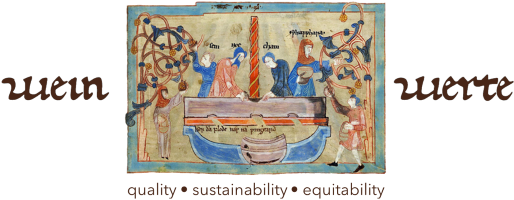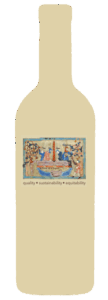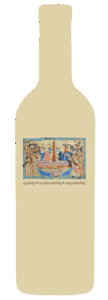Zind-Humbrecht | Elsass | Pinot Gris Clos Windsbuhl Trie Speciale, Sélection de Grains Nobles | 2005 | 375ml
98,50 €
262,67 €/l
inkl. 19 % MwSt.
zzgl. Versandkosten
inkl. Transportversicherung
Lieferzeit: 1 bis 2 Arbeitstage (DE), 2 bis 5 Arbeitstage (EU and CH)
Auf Lager
Weiter einkaufenBeschreibung
Produktbeschreibung für Zind-Humbrecht Pinot Gris Clos Windsbuhl Trie Speciale, Sélection de Grains Nobles 2005
Farbe
Funkelndes Bernstein.
Nase
In der Nase vermittelt der 2005er Pinot Gris Clos Windsbuhl Sélection de Grains Nobles Trie Speciale den Duft von flüssigem Waldhonig, Orangeat und gebrannten Mandeln. Schon vom Duft her bekommt man das Gefühl, ein Dessert im Glas anzutreffen.
Gaumen
Diesen Eindruck bestätigt der 2005er Pinot Gris Clos Windsbuhl Sélection de Grains Nobles Trie Speciale am Gaumen. Opulent, konzentriert und sehr geschmeidig rinnt diese Trockenbeerenauslese den Gaumen hinunter. Erfrischende Zitrusnoten im langen Nachhall verleihen dieser Opulenz Spiel und Facette; dies wird durch den niedrigen Alkohol noch angenehm unterstrichen.
Copyright Vinaturel 2025
Keywords: Zind-Humbrecht Pinot Gris Clos Windsbuhl Trie Speciale, Sélection de Grains Nobles 2005 Elsass Frankreich
Internetseite des Weinguts: http://www.zindhumbrecht.fr/
Zusätzliche Informationen
| Gewicht | 0,375 kg |
|---|---|
| Abmessungen | 1,5 × 1 × 1 cm |
| Land | Frankreich |
| Adresse | Domaine Zind Humbrecht, 4 Route de Colmar, 68230 Turckheim / France |
| Traubensorte/n | Pinot Gris/Grauburgunder |
| Süße | süß |
| Typ | still |
| Farbe | weiß |
| Alkohol % | 6.5 |
| Restsüße (g/l) | 350 |
| Säuregehalt (g/l) | 6.9 |
| Kalorien/125ml Glas (ca.) | 235 |
| Allergene | Enthält Sulfite |
| Bio-Zertifizierung | keine |
| Zertifikat biodynamisch | keine |
| Parker Punkte | k.A. |
| Vinous Punkte | k.A. |






